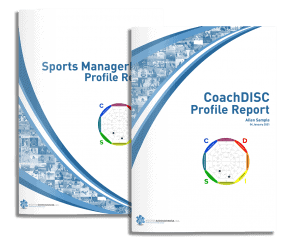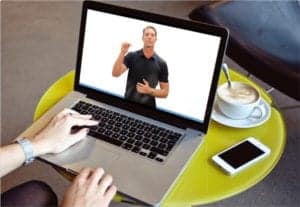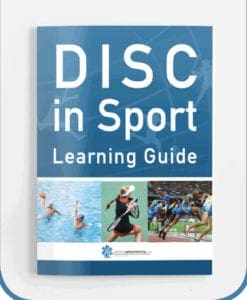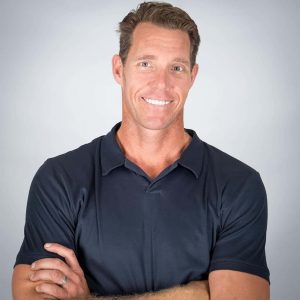How a student-athlete’s teambuilding skills and self-knowledge (using the AthleteDISC Profile) became an asset in his application for a career after college
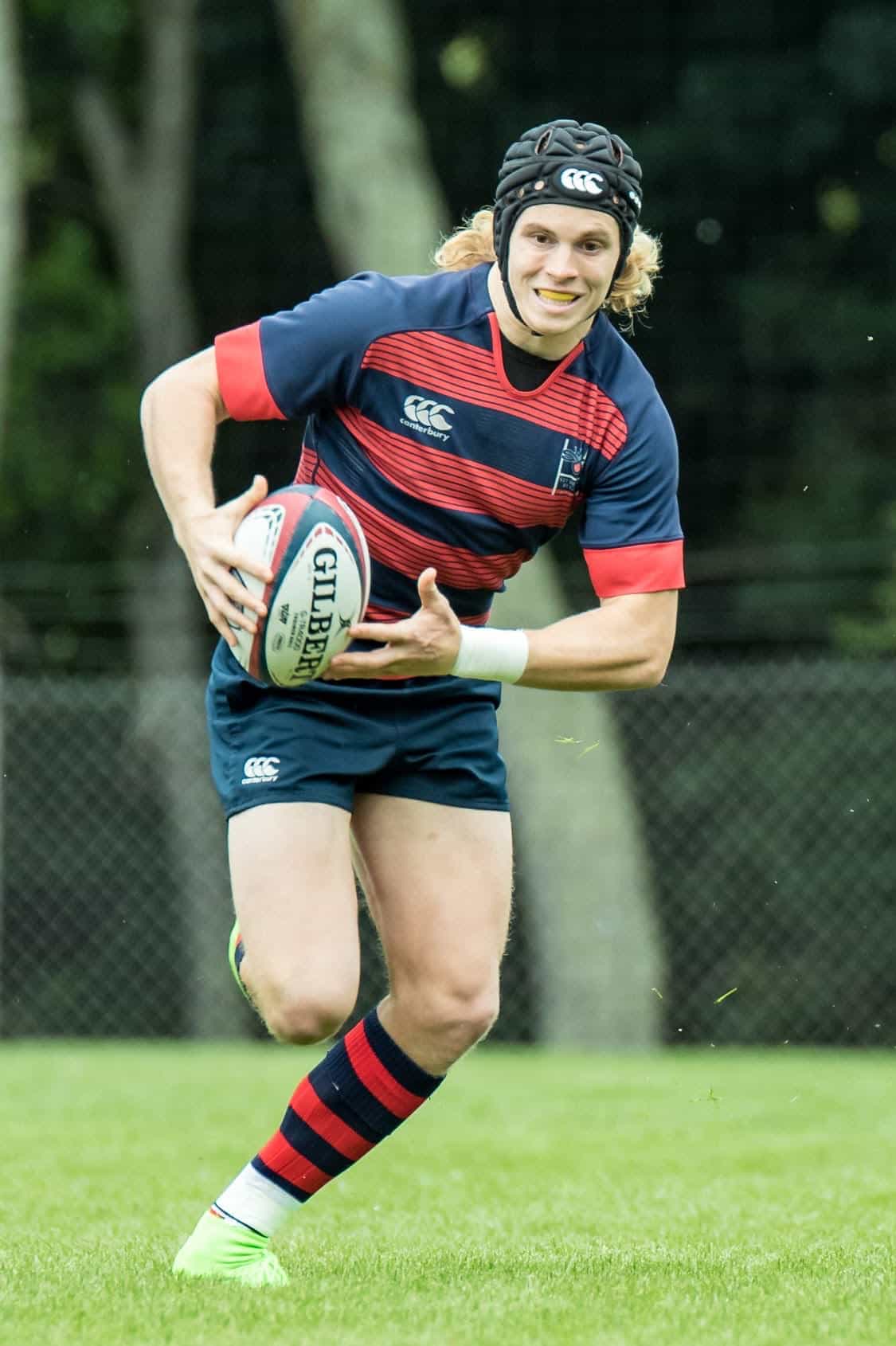 Chris McDonell graduated Saint Mary’s College of California with a B.A. in Politics and a minor in Spanish, but when it came to the interview process for a career in California’s Police Force, Chris’s superiors and interviewers thought one of his greatest strengths was his self-knowledge.
Chris McDonell graduated Saint Mary’s College of California with a B.A. in Politics and a minor in Spanish, but when it came to the interview process for a career in California’s Police Force, Chris’s superiors and interviewers thought one of his greatest strengths was his self-knowledge.
After four years playing rugby for St Mary’s and doing all the mental and physical training involved in competing for two National Championships, one of which they won, he knew exactly how he would react under pressure and what his leadership strengths and growth areas are.
In fact, Chris took his Athlete Assessments AthleteDISC Profile Report with him to the interview, showing the panel exactly what kind of contribution he could make to a team, and crucially for policing work, the report also detailed how Chris would behave under pressure.
Chris’s reasons for wanting to join the police force are inspiring and will resonate with anyone who comes from a sporting background. He says, “joining any police force is both active and challenging. I want a career that offers longevity and a constant challenge every day. After participating in collegiate athletics and academics, I want to continue in a career that offers similar rigors. There are so many opportunities in law enforcement: basic patrol, traffic, K9, detective divisions, and many more. Each specialty helps to ensure the functions and safety of a community, which is truly where I feel my presence can make a difference. The experiences I had at St. Mary’s – in particular, the coaching – guided my decision to enter the police world”.
“Ideally, I want to start my career by building relationships with individuals within the community I serve. The relationship between a police department and its community is pivotal; without public trust, police are only a detriment to the people. So, I hope to strengthen that trust with members of the community, then eventually become a professional in various specialty units. Working with dogs in the K9 unit has always been a goal of mine. The opportunity to patrol with your four-legged friend every day isn’t a luxury many other careers offer. After completing that goal, I would be open to work in any other division within the department.”
When it came to the interview, Chris prepared for his first career interview after graduation by examining his own strengths and weaknesses and decided to take his AthleteDISC Profile Report to the interview with him. The report provides excellent objective insight into an individual’s natural and adapted style, their preferred way of approaching a task and interacting with a team.
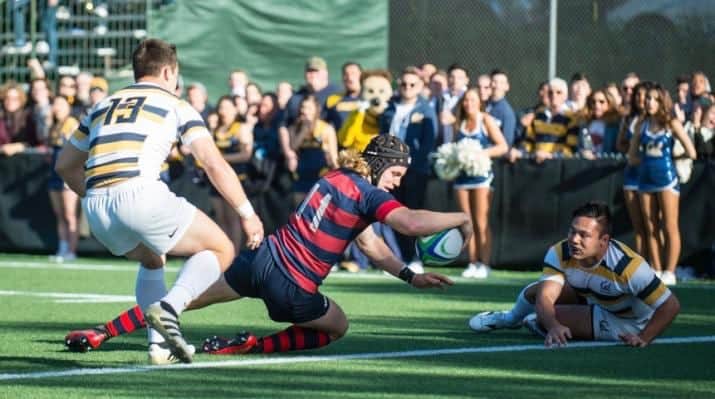
Chris says, “applying to police departments is an arduous process. Aside from the background checks and testing, a crucial piece to getting hired is the interview with department management. In several of my interviews, there was an opportunity to demonstrate what separates me from other applicants. I printed out the AthleteDISC Profile provided by Bo Hanson in his time with the team and presented it to the interviewers with a detailed explanation. I explained my AthleteDISC Profile’s meaning in relation to a career in that specific department: the behavioral characteristics I demonstrate in an excited state, in a dormant state, and my capabilities as a leader. I found that having this in-depth evaluation was a game changer during these interviews, and many of the departments thought so too. Each community faces different challenges, so I was able to use individual aspects of the DISC Profile and attribute them to my superior position as an applicant”.
Specifically, the report showed Chris and his interviewers what his contribution to a team could look like. He explains, “the Athlete Assessments profile answered questions about my performance in a team environment. I think it’s common for athletes to focus on their personal growth, often putting their contribution to the team in the background. Without the AthleteDISC Profile, I wouldn’t have known how my presence affects specific qualities and outcomes of the team. It came to my attention that while being a high ‘D’ is important to accomplish goals, the objectives of my team did not always need such a determined attitude. So, I learned to make my decisions more methodical and thought-out to enhance success within the team environment.
“The opportunity to work with Bo and receive professional feedback about my behavior in a team setting is invaluable. Employers – especially in law enforcement – want to know how you act under pressure, and more importantly, if adversity effects your behaviors in a negative way. Policing is a ‘people’ business, so there’s a lot of pressure on an officer to serve community members well regardless of adverse conditions. Having the athletic assessment with me during interviews points out exactly who I am in stressful situations. An awesome aspect of St. Mary’s rugby is that you will be challenged in leadership positions at one point or another. The DISC profile specifies areas of improvement as a leader, which police departments love to hear. Nobody is perfect, so being able to point out weaknesses in my behaviors during these interviews demonstrates growth and maturity”.
Given his experience transitioning from a student-athlete to professional, we asked Chris what he would take with him from his athletic career into his working life, he said, discipline. Elaborating he said, “as I mentioned earlier, employers love candidates who are consistent workers regardless of adverse conditions. At St. Mary’s rugby, there isn’t a lot of room for negligence. Athletes who compete at high levels know how to exercise discipline, which is a huge benefit in the working world. The discipline to be on time and get the job done will already be instilled within me. Collegiate athletics provided me with the opportunity to learn discipline and implement it in my life”.
Rugby is a team sport and while individual performances and discipline are imperative, it’s crucial that the team meets its own high-performance standards. We asked Chris about his contribution to the team, and he says, “I like to think I brought a little fire to the team in moments of need. I’m not that big of a guy, so I always tried to be aggressive and let that spirit fire-up the boys. Especially since I played multiple positions, it was important to be perfect so that the real studs on the team could shine”.
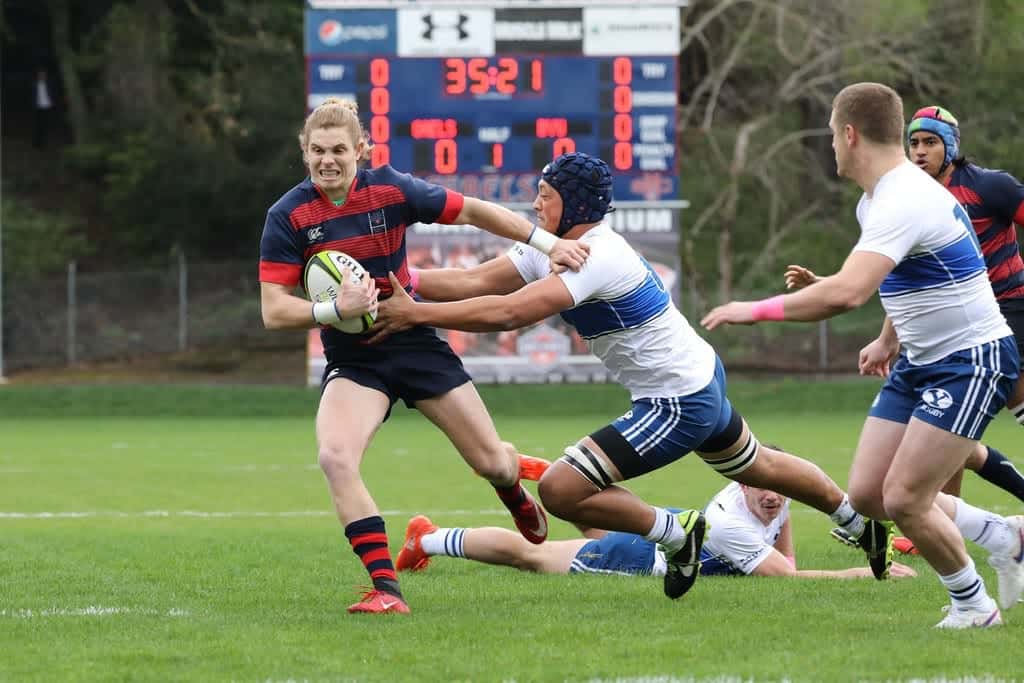
McDonell contested two National Championships in his time with St Mary’s and recalls the preparation, “one lesson I’ve learned with Bo is how to prioritize goals/objectives. I remember sitting in a classroom for several hours with Bo and twenty teammates discussing how to organize our team goals in order to win a National Championship. Bo encouraged us to start with macro-objectives (beating ranked teams, shut-out games, etc.), then slim down each one into smaller categories which pointed out the necessary contributions of each teammate. This experience taught each player that there are so many intricate pieces to accomplishing such monumental goals. Each player, decision, and outcome during a game can have profound impacts. This lesson reaches beyond collegiate rugby and into the working world. After leaving college, we as players have a multitude of decisions to make that will affect our future. Bo taught the team how to prioritize individual objectives that are necessary to reach a successful outcome. I plan to use the same lesson throughout my career; always being critical of my decisions in the hopes of reaching a specific goal”.
Of those very special games, the National Championships, McDonell says, “the support we received from alumni, family, and friends is truly what made those moments special. I only played in two championship games (2016, 2017), one of which we lost. Words can’t describe the feeling of losing a championship at home, working your ass off the following season, and seeing more supporters in the stands a year later to watch you win ‘the big one’. Our support system at St. Mary’s is incredible, so I think seeing such consistent love makes all those moments memorable”.
After completing a successful transition from student-athlete to professional, McDonell shared three things that have helped him in his time since graduation. He said, “stay busy, stay humble, and stay fit. There have been several disappointing moments in the working world since I graduated. Like I’ve learned as a student-athlete, take those disappointments and allow them to fuel your pursuit. Being humble and swallowing your pride may very well be the ticket to success in many industries. The current job market is competitive, so being a student-athlete means you are that much more resilient to hard times. Staying busy and humble helps to push pass the negativity and focus on the objective. Going into police work calls for a deep (and consistent) fitness base, which is something I gained during my time at St. Mary’s. Some people will lose that desire to stay fit and that’s perfectly fine – for them. As a future public servant, I don’t have any excuse to let myself go physically, so I plan to maintain that fitness base learned throughout my time as a collegiate athlete”.
Athletic competition comes with discipline, long hours spent in training and hard physical work, but there are also highlights. McDonell recounts a game that was particularly pertinent for him, “the victory over UC Berkeley in my last year as a Gael. Not many college teams have the luxury of saying they beat the Cal Bears at their own stadium, and we did it. It was my first and only start against the Bears in the four years I attended St. Mary’s. I left a happy man with that title belt”.
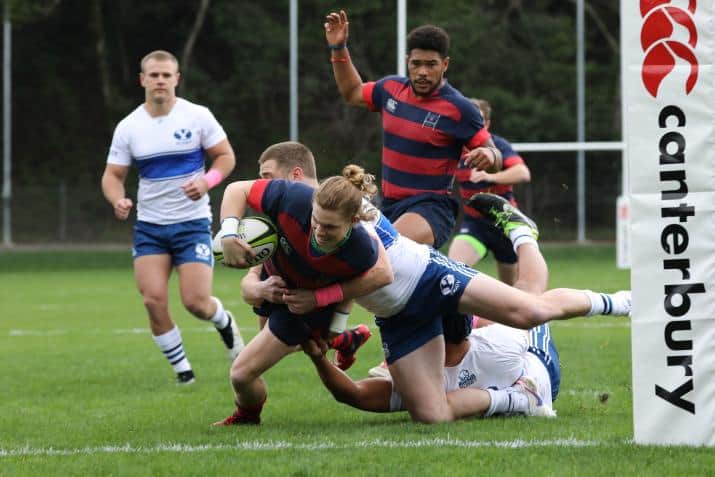
High-performance in every sport shares the same commitment to hard work and discipline, McDonell explains that this was certainly the case for the St Mary’s rugby program. He says, “the amount of work we put towards our program goes unrecognized on occasion. We aren’t an NCAA sanctioned sport, so when people think of collegiate athletes they don’t think of ‘club sport’ rugby as anything special. At St. Mary’s rugby, playing games comprises of less than ten percent of the total time spent as a team. We dedicate a full-time schedule to classroom sessions, weight training, conditioning, and mini-skills. The sport of rugby – specifically at the college level – is growing into something that competes with NCAA athletics. Our program has brought a serious learning aspect to the game, and many other programs are following suit. It’ll be interesting to see how collegiate rugby grows in the next decade”.
Invaluably, and for the benefit of other student-athletes, McDonell shares the insight he gained during his time at St Mary’s, “I would recommend being diverse in your skillsets. Throughout my four years, I played multiple positions that all required different sets of abilities. Some athletes pick up new positions with ease, but others might not. It’s important in rugby to have those mini-skills ‘up your sleeve’ in case you need them. And who knows, it may win you a starting XV spot”.
The tactics that McDonell employed on the field are equally as useful off the field and he said that he deals with challenging times by, “maintaining a busy, consistent schedule. It has always remedied challenging times for me. Things become more challenging when there’s too much time to think about whatever issue I’m facing. So, I look for work or things to fill my mind. In the last few years of rugby, the team utilized a similar tactic for overcoming challenges. After an opponent scored in a game, or an unproductive practice, we focused on team objectives to re-center our minds. There is always more work to be done, whether on or off the field. I have applied the same practice to my current life”.
McDonell has the kind of work ethic that layers project upon project and carries success from one sphere to the next, we asked him what he was aiming for in the future, he says, “I hope to have a long and successful career in law enforcement. Eventually, I’d like to attend graduate school when money and time is more available. It would also be great to reintroduce rugby into my life. Contact sports aren’t a great idea as an officer, but I made it out of St. Mary’s relatively unscathed and would like to keep trying my luck. Otherwise, I don’t have a definite plan for the future besides being happy with what I’m currently doing”.
And in a final tribute to Athlete Assessments, McDonell says, “St. Mary’s Rugby was able to grow exponentially from Bo’s work and influence. It was a privilege to win the 2017 National Championship a few months following his presence with us. We can say confidently that his guidance was imperative in our victory, and for that we are grateful. Personally, I learned invaluable lessons from Bo that will be influential in my career for many years to come”.
At Athlete Assessments we wish Chris McDonell the world of success.
 Athlete Assessments’ DISC Career Management Report
Athlete Assessments’ DISC Career Management Report
(Optional at no extra charge)
Whether you are a student-athlete looking to enter the workforce or a retiring professional athlete, this additional Report assists our clients in finding long term future prospects after sport. The DISC Career Management Report is an additional nine page report that accompanies any of the above DISC Profiles and is designed to contribute to future career planning and success. Find out more!
Click here to view a sample Career Management Report.
At Athlete Assessments, we’re here to provide you with excellence in service and here to help you be your best. If there is anything we can assist you with, please Contact us.


